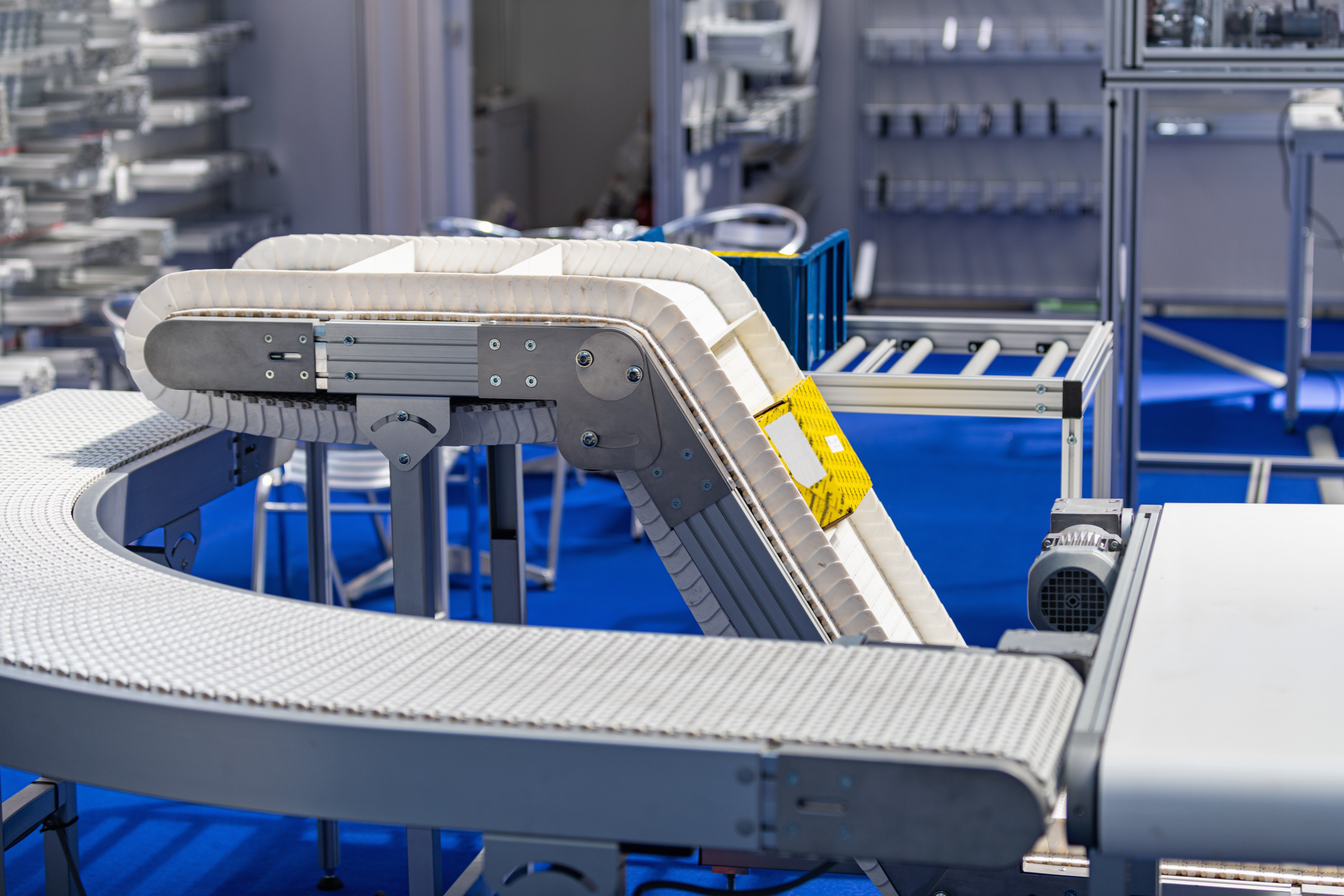Warehousing and logistics
Time:
2023-10-26

In the warehousing and logistics industry, the application of conveyor lines has greatly improved the capabilities of automated handling, efficient sorting, real-time monitoring, and flexible layout. In particular, modular conveyor belts not only embody these advantages, but also further enhance the integration and collaboration capabilities with other intelligent warehousing equipment, providing efficient solutions for modern logistics operations.
Application of modular conveyor belts in warehousing and logistics
Automated handling
Modular conveyor belts can achieve fully automated handling of goods from storage to delivery, greatly reducing the need for manual intervention. This automated processing method improves logistics efficiency, reduces labor costs, and can complete tasks more quickly and accurately. The modular design allows the length and width of the conveyor belt to be adjusted according to the specific needs of the warehouse to adapt to operations of different scales.
Efficient sorting
Combined with automatic sorting equipment, modular conveyor belts can quickly and accurately sort goods to designated locations. Its efficient sorting speed and accuracy are essential to improving overall operational efficiency. For example, in an e-commerce logistics center, modular conveyor belts can automatically sort goods according to order information to ensure that each package can be delivered to the next processing link in a timely and accurate manner.
Real-time monitoring
By integrating sensors and monitoring software, modular conveyor belts support real-time monitoring of the flow of goods, ensuring the transparency of the logistics process. Managers can understand the location and status of goods in real time through the system, so as to make more accurate decisions. This not only improves work efficiency, but also enhances the accuracy of inventory management.
Flexible layout
The design of modular conveyor belts is very flexible and can adapt to different space and process requirements. Whether it is a straight path or a curved path, or even complex diversion and merging operations, modular conveyor belts can easily cope with it. This flexibility allows companies to adjust the layout at any time according to their business development and optimize the logistics process.
Integration and collaboration
Modular conveyor belts can also work with other intelligent warehousing equipment (such as robots, automated shelves, etc.) to form an efficient logistics operation chain. The seamless docking and collaboration between them greatly improves the response speed and service level of the entire supply chain. For example, the conveyor belt can be directly connected to an automatic packaging machine or label printer to achieve continuous processing of goods, reduce intermediate links, and improve overall efficiency.
In short, modular conveyor belts have become an indispensable part of the modern warehousing and logistics industry with its high degree of automation, flexibility, and perfect integration with other intelligent devices. They not only help companies maintain their leading position in the fierce market competition, but also promote the intelligent development of the logistics industry.
OTHER PROJECTS















